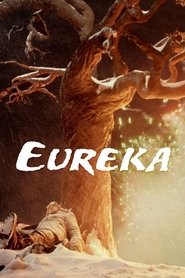Not the easiest film to like or even properly absorb on the first viewing, but there's something compelling about its para-operatic style. In his review of Terence Malick's The New World (2005), New York Times reviewer Manohla Dargis remarks that Wagner's prelude "begins as a whisper that grows progressively louder until it reaches a crescendo, signaling the moment when the Rhinemaidens realize that the Nibelung dwarf Alberich has forsworn love for gold and power." Thus a fitting soundtrack to 'Citizen McCann's' discovery of the cache. Still, we need neither movies nor opera to tell us what happens when a man possesses what, essentially, infinite money.
Nicolas Roeg [says] he has friends who seem to be the soul-clones of their parents, and apparently the closing passages of Eureka are meant to be seen with that notion in mind. […] If Eureka is not completely successful if, indeed, it is sometimes merely silly and often confusing, maybe that's the price we pay for Roeg's intensity. At least it is never boring.
One of those movies that defies the star rating system: according to individual taste, it veers from 5 stars to 1 star from scene to scene, and even viewing to viewing.
— Kim Newman (Empire)
As usual [Nicolas Roeg] does his best to obscure his themes beneath his space-fracturing editing style. Roeg has a way of hiding his exposition behind ambiguous symbols while inflating marginal incidents into major set-pieces that makes his work seem rich and mysterious—an illusion that functions well enough for entertainment purposes until the denouement reveals that the most obvious interpretations were the right ones all along.
— Dave Kehr (Chicago Reader)

